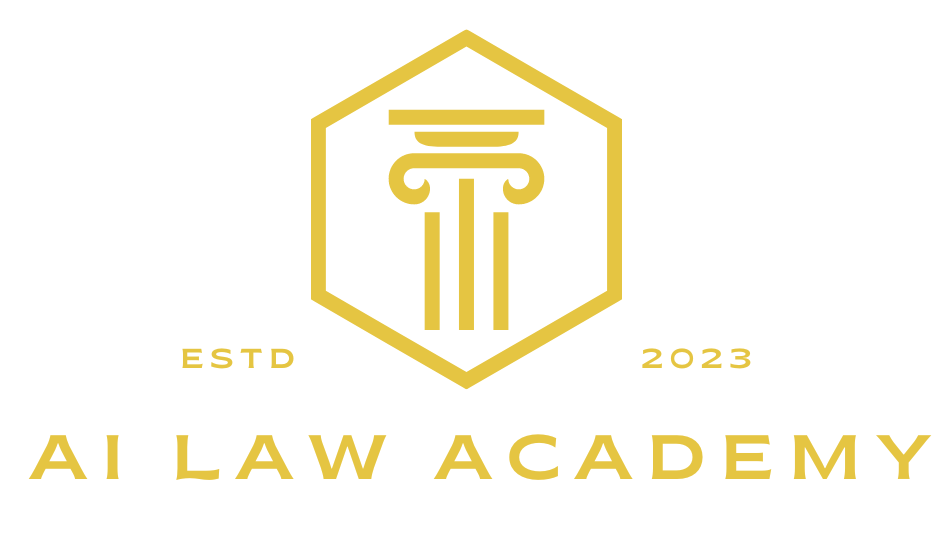
AI and Lawyers: Survey Results on AI Implementation
What is Online Learning?
The legal profession has come a long way in the past decade, with advances in technology revolutionizing various aspects of the industry. One of the most promising developments is the advent of artificial intelligence (AI) and its potential impact on the way lawyers conduct their practice. While many in the legal field have heard about AI, a recent survey by the AI Law Academy (AILA) revealed that most lawyers do not feel adequately prepared to implement AI in their law firms. In this blog post, we will discuss the results of AILA's survey and explore how the Academy is offering solutions to bridge the knowledge gap.
Survey Results: Lawyers' Readiness for AI ImplementationThe AI in Law Academy conducted a survey of 1,000 lawyers to gauge their readiness for implementing AI in their law firms.
The results revealed that while a significant number of lawyers had heard about AI, they didn't possess enough knowledge to effectively implement it in their practice.
The key findings of the survey include:
1. Awareness of AI: 82% of the respondents had heard about AI and its potential applications in the legal industry. However, only 24% felt they had a strong understanding of AI technology.
2. AI Adoption: Only 15% of the lawyers surveyed had already implemented AI in their practice, with the majority citing lack of knowledge and resources as the primary barriers to adoption.
3. Desire for AI Education: 87% of respondents expressed a keen interest in learning more about AI and how to implement it in their law firms, indicating a strong demand for AI education in the legal profession.
AILA: Bridging the Knowledge Gap
To address the concerns highlighted by the survey, the AI in Law Academy has developed a comprehensive program that aims to educate lawyers on AI technology and its applications in the legal field. The Academy's initiatives include:
1. Training Courses and Workshops: AILA offers a variety of training courses and workshops that cater to different levels of AI expertise. These courses cover essential topics such as AI fundamentals, legal-specific AI applications, and best practices for AI implementation.
2. Online Resources: The Academy provides an extensive library of online resources, including articles, case studies, and webinars, to help lawyers stay updated on the latest developments in AI technology.
3. Networking and Collaboration: AILA facilitates networking opportunities and collaborative projects among legal professionals, AI experts, and technology companies, fostering an environment where ideas can be shared and new AI solutions can be developed.
4. Certification Programs: To ensure that lawyers possess the necessary skills and knowledge to implement AI in their practice, AILA offers certification programs that evaluate and validate their AI expertise.
Conclusion
The AI in Law Academy's recent survey highlights the significant interest in AI technology among legal professionals, as well as the need for more education and resources to facilitate its adoption. By offering comprehensive training, resources, and networking opportunities, AILA is well-positioned to help lawyers bridge the knowledge gap and embrace the future of legal practice with confidence. As more law firms adopt AI technology, the legal industry can expect increased efficiency, accuracy, and competitiveness, ultimately benefiting both practitioners and clients alike.
Survey Results: Lawyers' Readiness for AI ImplementationThe AI in Law Academy conducted a survey of 1,000 lawyers to gauge their readiness for implementing AI in their law firms.
The results revealed that while a significant number of lawyers had heard about AI, they didn't possess enough knowledge to effectively implement it in their practice.
The key findings of the survey include:
1. Awareness of AI: 82% of the respondents had heard about AI and its potential applications in the legal industry. However, only 24% felt they had a strong understanding of AI technology.
2. AI Adoption: Only 15% of the lawyers surveyed had already implemented AI in their practice, with the majority citing lack of knowledge and resources as the primary barriers to adoption.
3. Desire for AI Education: 87% of respondents expressed a keen interest in learning more about AI and how to implement it in their law firms, indicating a strong demand for AI education in the legal profession.
AILA: Bridging the Knowledge Gap
To address the concerns highlighted by the survey, the AI in Law Academy has developed a comprehensive program that aims to educate lawyers on AI technology and its applications in the legal field. The Academy's initiatives include:
1. Training Courses and Workshops: AILA offers a variety of training courses and workshops that cater to different levels of AI expertise. These courses cover essential topics such as AI fundamentals, legal-specific AI applications, and best practices for AI implementation.
2. Online Resources: The Academy provides an extensive library of online resources, including articles, case studies, and webinars, to help lawyers stay updated on the latest developments in AI technology.
3. Networking and Collaboration: AILA facilitates networking opportunities and collaborative projects among legal professionals, AI experts, and technology companies, fostering an environment where ideas can be shared and new AI solutions can be developed.
4. Certification Programs: To ensure that lawyers possess the necessary skills and knowledge to implement AI in their practice, AILA offers certification programs that evaluate and validate their AI expertise.
Conclusion
The AI in Law Academy's recent survey highlights the significant interest in AI technology among legal professionals, as well as the need for more education and resources to facilitate its adoption. By offering comprehensive training, resources, and networking opportunities, AILA is well-positioned to help lawyers bridge the knowledge gap and embrace the future of legal practice with confidence. As more law firms adopt AI technology, the legal industry can expect increased efficiency, accuracy, and competitiveness, ultimately benefiting both practitioners and clients alike.
Copyright © 2023
30% OFF!
Huge offer is waiting for you!
Click the button to make this offer yours! Limited-time only!

